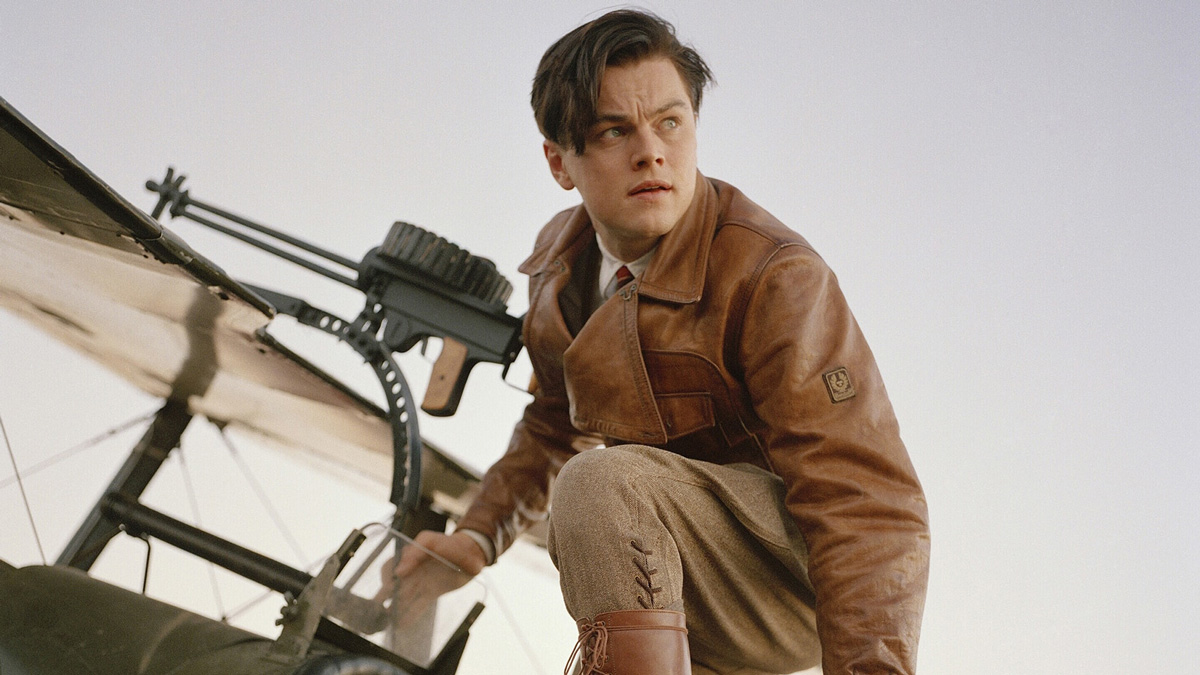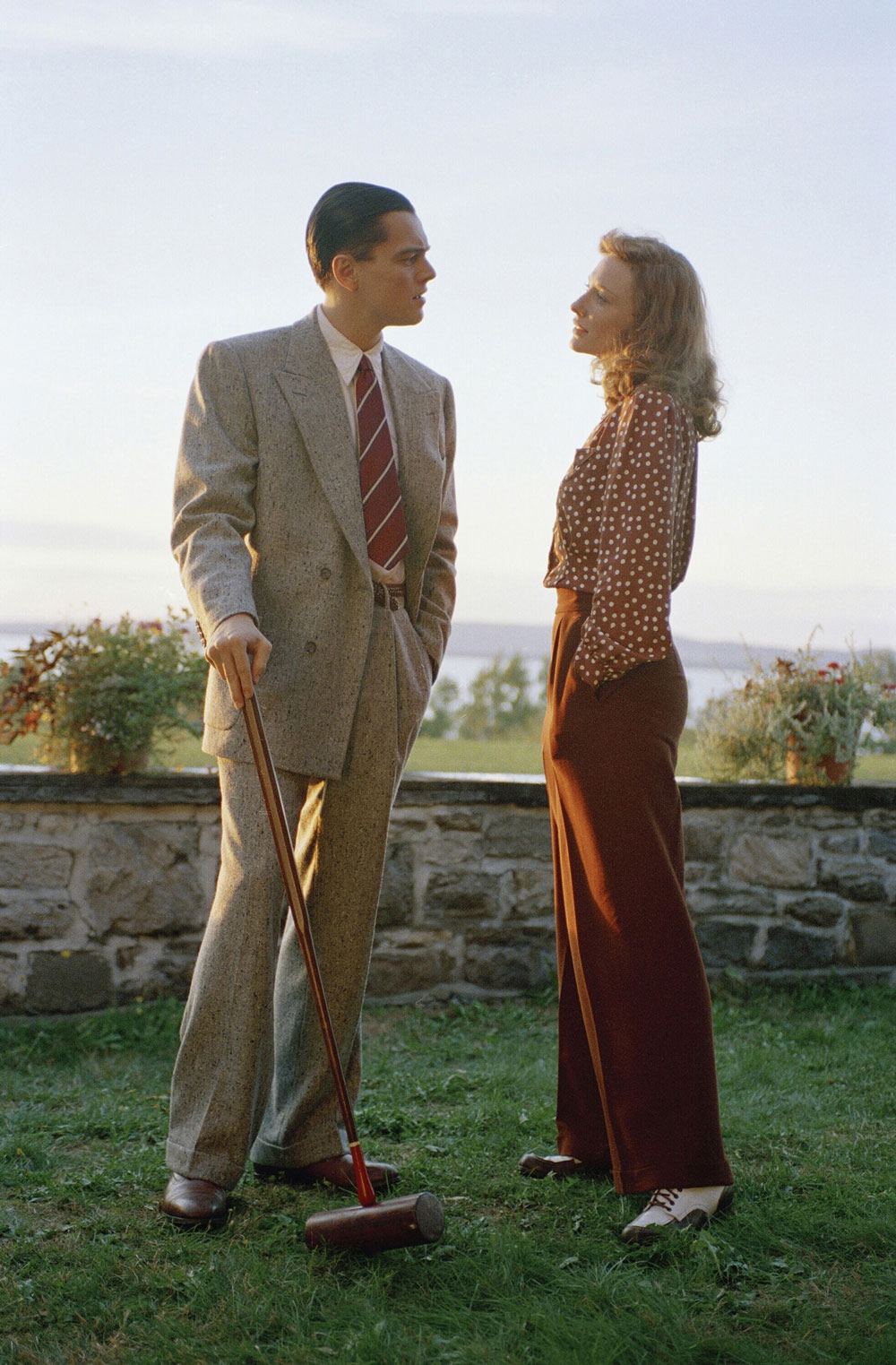
(c) Photofest / Getty Images
“The Aviator” Legendary millionaire Howard Hughes, light and shadow of his dynamic life
2019.03.22
What are the feelings that producer and star Leonardo DiCaprio has for Hughes' "Loneliness"?
By the way, Hughes withdrew from film production once in mid-1932, but just before that he made a gangster movie called `` Face of the Underworld '' (1932, directed by Howard Hawks), which Scorsese often cites as his favorite. It's a masterpiece (it was remade in 1983 as Scarface , directed by Brian De Palma with a script by Oliver Stone and starring Al Pacino).
The story of Howard Hughes, which includes important anecdotes from film history and depicts the light and shadow of outrageous desires in a chronicle style, is similar to films such as `` Raging Bull '' (1980) and `` Goodfellas '' (1990). ), `` Casino '' (1995), and `` The Wolf of Wall Street, '' this seems to be Scorsese's favorite subject matter. However, quite surprisingly, Scorsese apparently had no interest in Howard Hughes until he was asked to develop The Aviator.
He also made this comment in the audio commentary of the DVD Premium Edition. ``At first, I read the script without knowing anything about it.My manager said, ``You should definitely read it.''When I saw the title, I thought, ``It's about airplanes,'' so I wasn't particularly keen on it.''
So who became obsessed with this unique man, Howard Hughes? Speaking of which, that is Leonardo DiCaprio, who is also the lead actor and executive producer. DiCaprio read Hughes' biography as a teenager and was captivated by it, and has always dreamed of one day making a film about his life. Hughes, who had been in the showbiz industry since he was a boy, may have been attracted to the vitality and sensitive inner nature of the young Hughes, who was full of creativity and foresight that ushered in a new era. do not have.
Eventually, DiCaprio approached Michael Mann, known for directing films such as `` Heat '' (1995) and `` The Insider '' (1999), and the script was written by John DiCaprio, who directed `` Gladiator '' (2000, directed by Ridley Scott). Ask Logan. Michael Mann decided to concentrate on producing the film, leaving the directorship to Scorsese. DiCaprio tenaciously worked on this project for eight years, and ``The Aviator'' was the first work he produced under his own production company, ``Appian Way.''
Since DiCaprio has a stronger attachment to Hughes than anyone else, it can be assumed that DiCaprio has a lot of intention in terms of the content of this film. A notable feature of the adaptation is that it treats his love affair with the great actress Katharine Hepburn (played by Cate Blanchett, who won the Academy Award for Best Supporting Actress for this role) as a particularly important episode.

"The Aviator" (c)Photofest / Getty Images
The two had a honeymoon relationship for about three years after they met in 1936, which is not a significant amount of time given Hughes' 70-year life. However, when you watch ``The Aviator,'' you realize that Katharine Hepburn is the only soulmate that Hughes ever met in his life, and that breaking up with her marks a decisive turning point in his own life. It has a structure. From days of energetic celebration, to a tone of loneliness, depression, or even collapse.
When you think about it, the true theme of ``The Aviator'' seems to be Hughes's ``solitude.'' The most symbolic is the opening scene. In a room in a luxurious mansion, a young boy, Hughes, is being washed by his young and beautiful mother. And last. As an adult, Hughes sees his younger self standing in the dark. Boy Hughes tells his mother:
``When I grow up, I'm going to fly in the fastest plane, make great movies, and become the richest person in the world.''
The images presented at the beginning and end, as if to flank the entire film, are of Hughes as the ``lonely boy'' behind all dreams and glory. Has DiCaprio entrusted his personal feelings as a fellow super celebrity to this deep-rooted ``loneliness''? If you look at it from this perspective, you might see the blockbuster movie ``The Aviator'' a little differently.
Text: Naoto Mori
Film critic, writer. Born in Wakayama in 1971. He is the author of ``Cinema Garage: Children in the Ruins'' (Film Art Publishing), and edited ``Movies of the Zero Years+'' (Kawade Shobo Shinsha), among others. He regularly writes for magazines such as Weekly Bunshun, Asahi Shimbun, TV Bros., Men's Nonno, Kinema Junpo, Eiga Hiho, and Cinema Today.
(c) Photofest / Getty Images

